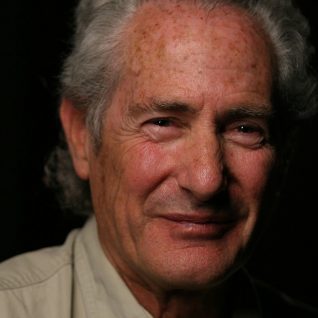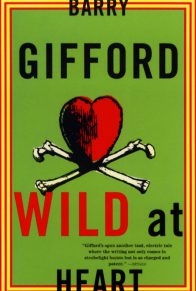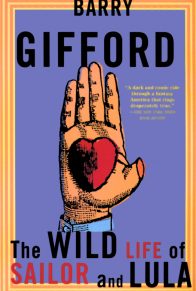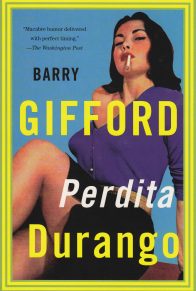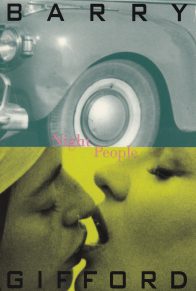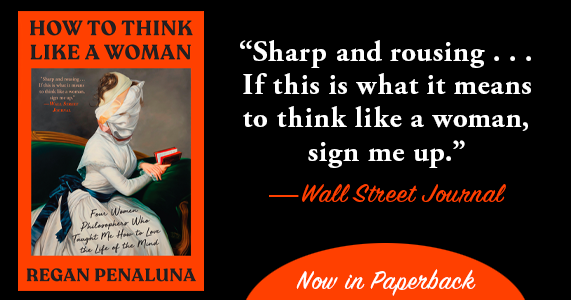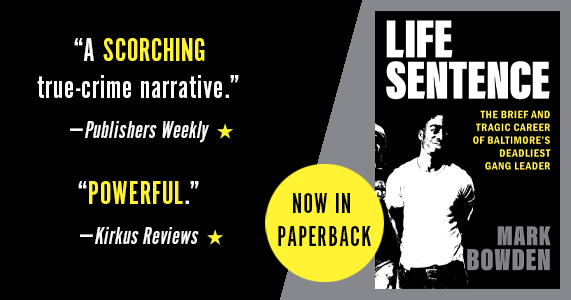From The Author:
THE THRILL OF A WRITER’S LIFETIME
I recently returned to Cuba for the first time in more than forty years, since I was a young boy. My mother and I spent most of our time in the early and mid-1950s in Key West and Miami, Florida, interspersed with frequent visits to Chicago, my father’s headquarters, and our alternate residence. My father stayed regularly at the Hotel Nacional in Havana, where he had business dealings; and for a time my mother kept a house at Varadero, on the beach near the DuPont estate, about two hours from the capital. I have a snapshot of myself playing on la playa at Varadero when I was three years old or so, and a great picture of my dad with his cronies at Oriente racetrack in Havana. After Castro took over, however, my family no longer spent time in Cuba. My father died in December of 1958, in Chicago, and my mother, who lives in Phoenix, has never gone back to the island.
I was invited to participate in an international symposium sponsored by a Brazilian organization to talk about life and its risks. My qualifications for speaking on this subject, it was explained to me, were simply that I had lived my life as a writer, not ever taking an academic route but taking the chance that I could support myself and my family on the basis of my (mostly) literary efforts. I have been writing stories and poems since the age of eleven_when my mother and father and I were still visiting Cuba_and it is true that somehow I have been able to survive and provide for others by virtue of earnings derived from novels, screenplays and journalism. I am now fifty-four years old, and I was told not long ago that only one per cent of writers are able to support themselves solely by their writing. If this is true, I certainly must consider myself a lucky man, because writing has been my abiding passion for longer than the lifetime of Kafka or Rimbaud.
It was in Cuba that something so exquisite occurred that I consider it to be one of the greatest thrills of my life. One afternoon during my recent visit I was taken with a few others on a private tour of the Cohiba cigar manufacturing plant in Siboney, a barrio of La Habana. While we were walking around the nineteenth-century mansion observing the workers sorting and culling and rolling tobacco leaves, I asked our guide if Cohiba still employed a lector, a person to read to them to help pass the time. The tradition of lectores dates back to mid-nineteenth century Spain and continued thereafter in Cuba and then Key West and Tampa, Florida, which became the cigar manufacturing capital of the United States after refugees of the Spanish-American War settled there. I began spending time in Tampa in 1959, after my Uncle Les, my mother’s brother, moved there, and the old cigar factories were still operating, although by that time the readers had been replaced by radios and the rollers by machines.
Our guide at the Cohiba plant asked me if anted to meet their lector, and I said, of course. While we waited for her I thought about the history of these readers, who read everything from newspapers to Tolstoy, Dostoevsky and potboilers. A large black woman named Zaida greeted me, introducing herself as la lectora. She asked me what my profession was and I explained that I was a novelist and screenwriter_”Yo soy un escritor de las novelas y películas“_and that I was pleased to learn that the tradition of the reader still existed in Cuba. Zaida asked me what I had written that she might have heard of. I told her that the most likely story of mine would be my novel, Wild at Heart, in Spanish Corazón salvaje, which had been made into a popular film. La Lectora‘s eyes lit up and she grabbed me and gave me un gran beso (a big kiss) and un abrazo (a hug). “Corazón salvaje is one of my favorites!” she exclaimed. “I love Corazón salvaje! Sailor y Lula!”
I assumed that she must have been referring to the movie rather than the novel_the Cubans lift American films off satellite and broadcast them on national television. It didn’t matter to me, since I’m very fond of the film version.
I then mentioned to Zaida that my practice is to carry with me to foreign countries a copy of a book of mine in the language of that country whenever possible, to use as a kind of second passport in case I lose my money and passport; this way I can at least prove who I am_especially if there is a photograph of me on the book cover_and get someone to loan me money until I can wire for more. I happened to be carrying with me in my pack that day a paperback copy of Corazón salvaje. I took it out and Zaida snatched it out of my hands. She kissed the front cover and insisted that I sign it for her, which I did. Zaida said that she read each day to the workers for a hour and a half, she was on the final chapter of a romance novel at the moment, but she promised that when she finished she would read Corazón salvaje next. I told her I would be honored if she did this.
Zaida took my arm and proceeded to take me around, introducing me to her special friends among the workers, letting them know that I was the author of Corazón salvaje, the next novel that she would be reading for them. As we passed from room to room, most decorated with photographs and portraits of Che Guevara and signs reading “Seguimos en Combat” (“We are still in the fight”) and “Viva la revolución!”, Zaida handed me a selection of cigars, which I gratefully accepted.
Later, as my friend José Pinto and I were descending the steps of the Cohiba house, waving goodbye to Zaida and others, José, who lives in Madrid, said to me, “My God, Barry, that was amazing. What a great coincidence that not only did she know your work but that you happened to have a copy of the book with you. What a thrill.”
What had happened hadn’t quite sunk in yet, but I acknowledged that this sort of unexpected event validated my efforts in a way I never could have imagined. I shivered a little in the heat. “José,” I said, “what more could a writer ask for?”
June 2001
Copyright by Barry Gifford 2001. All rights reserved. Used by permission of the author.
Books by Barry Gifford
FICTION
Wyoming (New York: Arcade/Little, Brown, 2000)
The Sinaloa Story (New York: Harcourt Brace, 1998)
Baby Cat-Face (New York: Harcourt Brace, 1997)
Arise and Walk (New York: Hyperion, 1994)
Night People (New York: Grove Press, 1992)
Port Tropique (New York: Vintage/Random House, 1991)
Landscape with Traveler (New York: E.P. Dutton, 1980)
A Boy’s Novel (Santa Barbara: Christopher’s Books, 1973)
My Last Martini (Birmingham: Crane Hill, 2000)
American Falls (New York: Seven Stories, 2002)
THE SAILOR AND LULA NOVELS
Wild at Heart (New York: Grove Press, 1990)
Perdita Durango (New York: Grove Press, 1996)
The Wild Life of Sailor and Lula (New York: Grove Press, 1996)
Sailor’s Holiday (New York: Random House, 1991)
Sultans of Africa (New York: Random House, 1991)
Consuelo’s Kiss (New York: Random House, 1991)
Bad Day for the Leopard Man (New York: Vintage/Random House, 1992)
Southern Nights (Edinburgh: Rebel Inc./Canongate Books, 1999)
NONFICTION
Bordertown (with David Perry) (San Francisco: Chronicle Books, 1998)
The Phantom Father: A Memoir (New York: Harcourt Brace, 1997)
A Day at the Races (New York: Atlantic Monthly Press, 1988)
Out of the Past:Adventures in Film Noir (Jackson: University Press of Mississippi, 2001)
The Neighborhood of Baseball (New York: E.P. Dutton, 1981)
Saroyan: A Biography (with Lawrence Lee) (New York: Harper & Row, 1984)
Jack’s Book: An Oral Biography of Jack Kerouac (with Lawrence Lee) (New York: St. Martins Press, 1978)
Las cuatro reinas [with David Perry] (San Francisco: Gallery 16, 2001)
POETRY
Flaubert at Key West (Lawrence, Kansas: First Intensity, 1997)
Ghosts No Horse Can Carry (Berkeley: Creative Arts, 1989)
Giotto’s Circle (Laurinburg, N.C.: St. Andrews Press, 1987)
Beautiful Phantoms (Bolinas: Tombouctou Press, 1981)
Persimmons: Poems for Paintings (Berkeley: Shaman Drum, 1977)
The Boy You Have Always Loved (Vancouver: Talon Books, 1976)
Poems for Snail Hut (Santa Barbara: Christopher’s Books, 1978)
Horse hauling timber out of Hokkaido forest (Santa Barbara: Christopher’s Books, 1979)
Coyote Tantras (Berkeley & London: Silver Thorne Press, 1968)
The Blood of the Parade (London: Silver Thorne Press, 1967)
Selected Poems of Francis Jammes (translations with Bettina Dickie) (Logan: Utah State University Press, 1976)
Replies to Wang Wei (Berkeley: Creative Arts, 2001)
PLAYS
Hotel Room Trilogy (Jackson: University Press of Mississippi, 1995)
SCREENPLAYS
Lost Highway (with David Lynch) (London & Boston: Faber and Faber, 1997)
FILMS
“Wild at Heart” 1990, Directed by David Lynch (Polygram/Propaganda Films) [Feature]
“Hotel Room” 1993, [Tricks and Blackout plays], Directed by David Lynch (Asymmetrical Films/HBO Television) Written by Barry Gifford
“Perdita Durango” 1997, Directed by Alex de la Iglesia (Iberoamericana-Lola-Sogetel Films) [Feature] [USA video release re-titled “Dance with the Devil” – Unapix (NY) ] Co-written by Barry Gifford and Alex de la Iglesia
“Lost Highway” 1997, Directed by David Lynch (Ciby2000/Asymmetrical Films) [Feature] Co-written by Barry Gifford and David Lynch
“Bordertown: A Journey with Barry Gifford” 1999, Directed by George Luneau (Nestor Productions Paris, France) [Documentary]
“BARRY GIFFORD: Wild at Heart in New Orleans” 1999, Produced and directed by Francesco Conversano and Nene Grignaffini (MOVIE MOVIE/RAI, Bologna and Rome, ITALY) [Documentary]
“City of Ghosts” 2002, Directed by Matt Dillon (MGM/UA) Co-written by Barry Gifford and Matt Dillon [Feature]
PLAYS
Hotel Room plays performed in: New York; Dallas; Jackson, MS; New Orleans; Belmont, CA; Los Angeles; 1993
Wyoming performed in: San Francisco (Magic Theatre premiere) 2000
